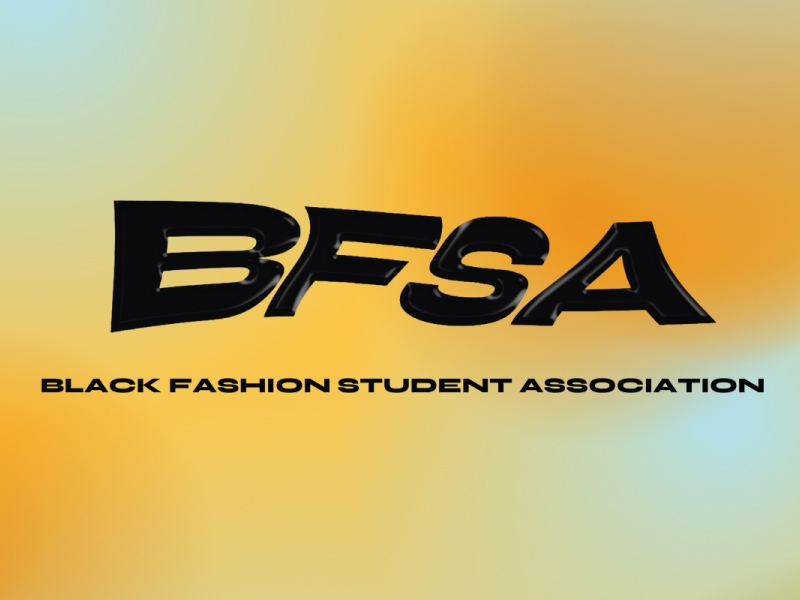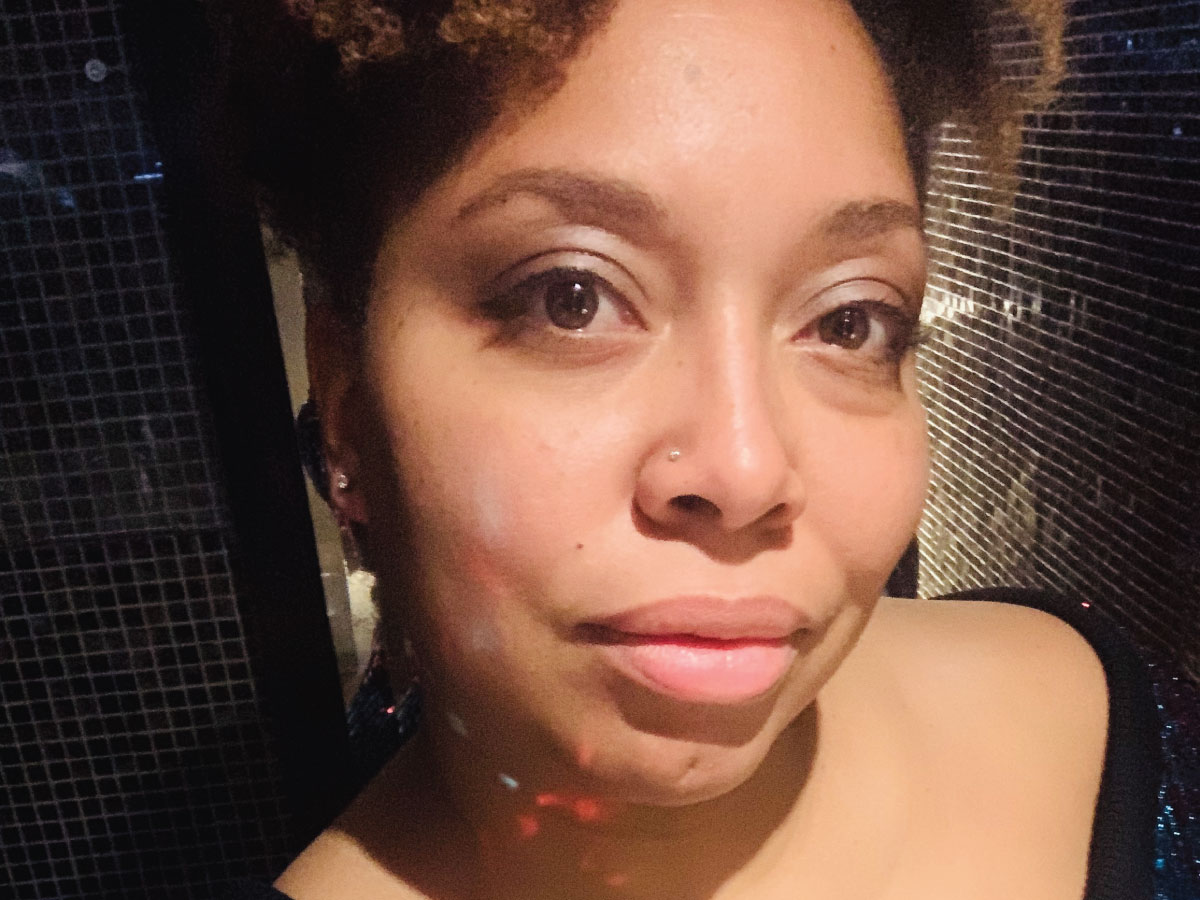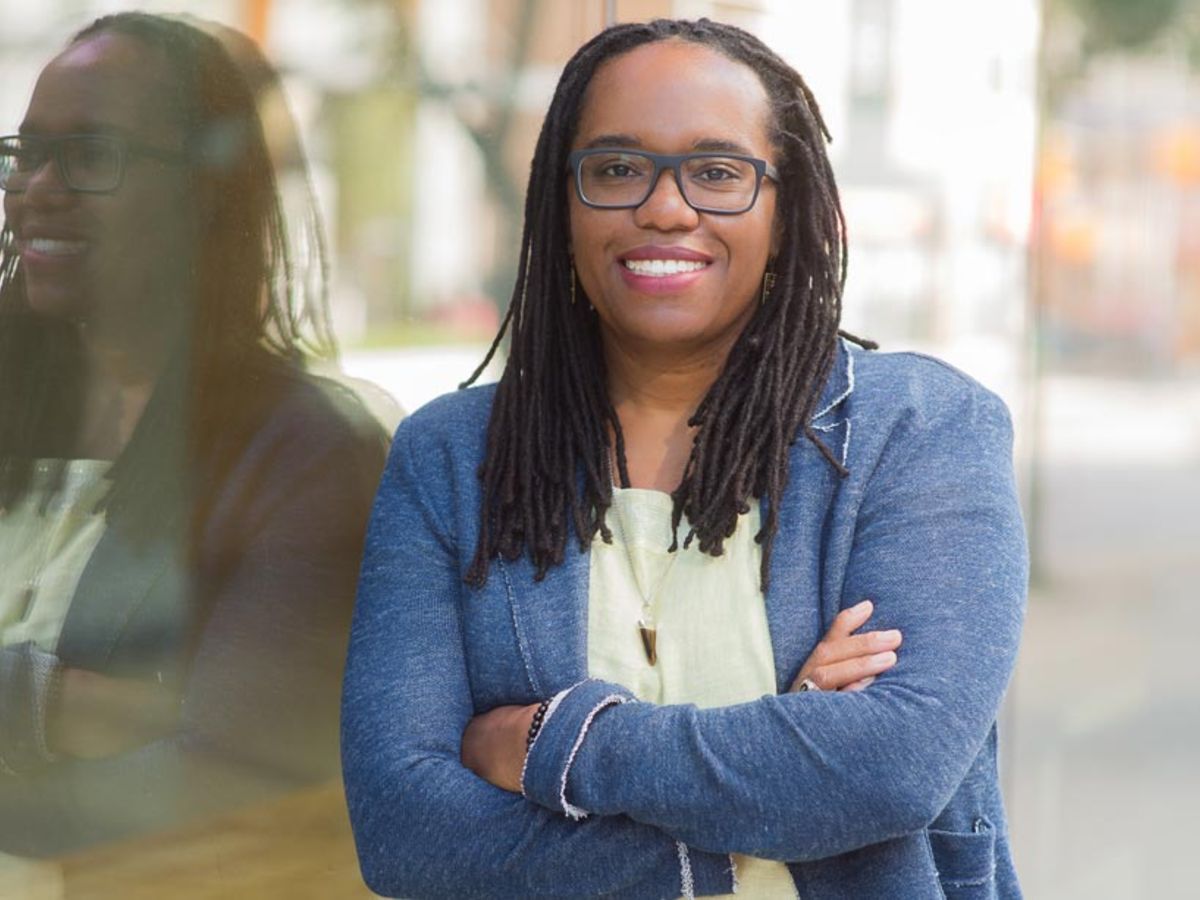Celebrating Black History Month through fashion and design
Founded in 2019 by Fashion Professor Caron Phinney, the Black Fashion Student Association (BFSA) aims to create an inclusive community and to discuss issues facing Black students in fashion education and the fashion industry. With the help of two undergraduate Fashion student interns, the BFSA plans and organizes events, secures tools and resources helpful to Black students and collaborates with industry professionals for career-building initiatives.
“The BFSA was created over dinner in the summer of 2019. I invited six alumni to have dinner with me to talk about their experiences of being a Black student within the School of Fashion,” Phinney explained. “I know how it was for me when I was a student in the program 20 years ago and unfortunately, they were talking about the same struggles. The need for a safe space for our Black students, alumni, faculty and staff became very clear.”

The Black Fashion Student Association was founded in 2020 by Fashion Professor Caron Phinney
Currently, Phinney, with the BFSA, is collaborating with Performance Professor Cheryl Thompson from The Laboratory for Black Creativity to curate a window display that pairs Black fashion history with current Black fashion designers at The Creative School. Refashioning Canada: Past and Future includes a montage of Thompson's five-page feature in Canada's History on Black and Caribbean designers and models in the 1970s through 1990s, and displays garments designed by current and alumni Black Fashion students.
“One of the claims in the Canada's History article is that Black Canadian fashion entrepreneurs of the past might not be household names today, but they broke down barriers, especially in Toronto’s fashion scene in the 1970s and 1980s thereby creating opportunities for the next generation,” says Thompson. “Our aim with the exhibit is to create that link with this generation of fashion students to the trailblazers who came before, and of those currently blazing new trails in today's world of fashion. This exhibit gives both history and signals to the future at the same time, which we think is vitally important for students at The Creative School.”

Fashion Professor Caron Phinney

Performance Professor Cheryl Thompson
Programming for students, by students
Tomi Segun-Adebowale, a third-year Fashion student and student intern with the BFSA, says the presence of the BFSA is essential to the Black students in the Fashion program to provide a sense of community and camaraderie and a space where they can share their inspirations and struggles.
“This sense of community is especially important because the industry is highly saturated with western influence, so sometimes Black fashion students tend to feel like a needle in a haystack and try to adapt/create in a way that appeals to the general understanding of the industry,” she said. “The BFSA is a place where they get that initial nudging and seal of endorsement to be authentic, daring and creative.”
Ellen Song’E, another third-year fashion student and student intern, agrees and says that the BFSA provides a safe space for students to come and talk about challenges Black creatives may face in the classroom as well as in the industry.
“One reason the BFSA is important to the Black community within the School of Fashion is that it gives us space to discuss things that may not be taught in the curriculum,” she said. “The School of Fashion values decolonization but this is a broad topic surrounding several races/cultures, and having a group specifically for Black fashion students allows us to discuss specific subject matters.”
Creating community on campus
When Segun-Adebowale first joined the program, she often felt isolated by online learning and found it difficult to make connections with her peers. Getting more involved with the BFSA and the university at large helped her find a sense of belonging.
“My first two years of being a student at TMU were entirely online, so I felt alone as I assume a lot of my peers did. I got to know about the BFSA through an Instagram Story and my relationships and involvement at The Creative School have changed ever since,” she said. “Being an Intern and being relevant in the BFSA makes me feel a sense of fulfillment. I love seeing new faces in our meetings because I know just how relieving and exciting their academic and professional journey is about to be for them.”
With a goal of helping Black students in the Fashion program thrive to their full potential, Song’E says that her favourite part of being involved in the BFSA is creating a community for like-minded students.
“I really enjoy being able to give my input and experience as a Black fashion student at The Creative School to be able to come up with ways of helping other Black individuals feel comfortable and thrive as creatives,” she said.
The Creative School at Toronto Metropolitan University
The Creative School is a dynamic faculty that is making a difference in new, unexplored ways. Made up of Canada’s top professional schools and transdisciplinary hubs in media, communication, design and cultural industries, The Creative School offers students an unparalleled global experience in the heart of downtown Toronto.